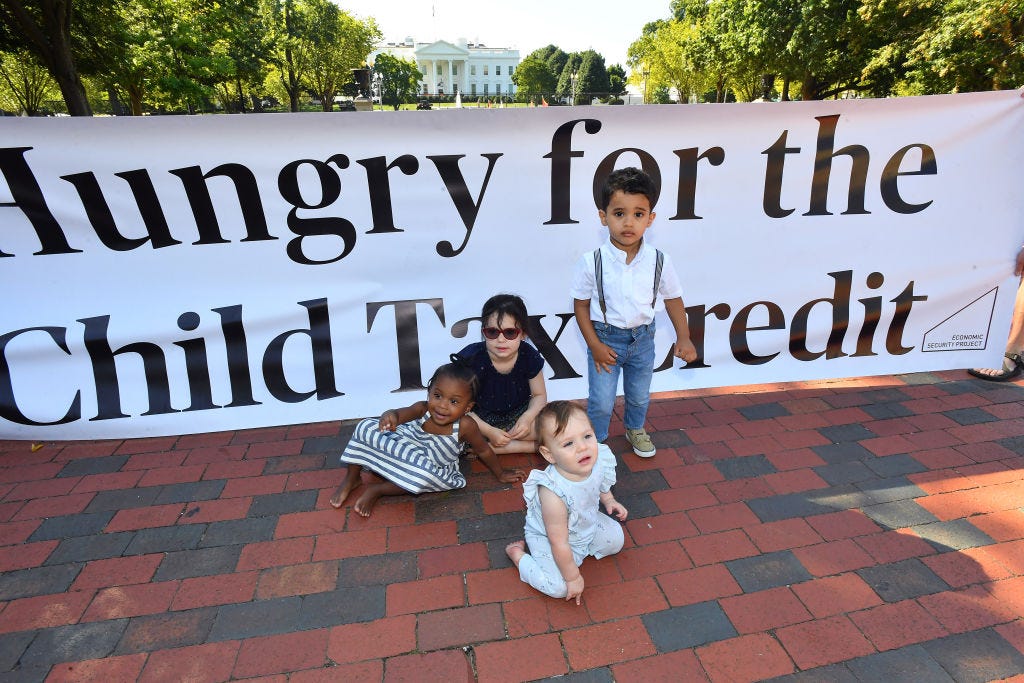What do you deserve?
Author Natalie Foster believes the government should guarantee you many things it does not now. Here's what she envisions a fairer America could look like and how she thinks it can actually be won
Some great American traditions: Complaining about taxes. Thinking that government should be run like a business. Showing up to vote every four years and wondering why nothing seems to change.
Natalie Foster thinks you should be asking for — and expecting — more. A lot more.
In her new book, The Guarantee: Inside the Fight for America’s Next Economy, the author, organizer, and president of the Economic Security Project outlines her vision for what government should — and could — be doing to build better lives for all Americans. As Foster tells it, the notion of a “guarantee economy” is distinctly American (going all the way back to Thomas Paine), foundational to capitalism, and essential to realizing the promise of America for all of its people.
It’s just the sort of agenda the Congressional Progress Caucus has in mind for Biden’s second term.
We talked to Foster about the specific litany of guarantees she argues for in the book, how the government’s response to the Covid-19 pandemic demonstrated that it’s possible to deliver benefits to people right now, and how building a fair economy can help stave off chauvinistic authoritarianism.
And a request for those who haven’t yet joined us: The interviews and essays hat we share here take research and editing and much more. We work hard, and we are eager to bring on more writers, more voices. But we need your help to keep this going. Join us today to support the kind of independent media you want to exist.
And today we’re offering you a special discount of 20 percent if you become a paying subscriber. You will lock in this lower price forever if you join us now!
Your new book, The Guarantee, argues, against so many deeply ingrained American intuitions, that we can have nice things. We can expect nice things. That we could even guarantee people nice things. To start off, why is such a seemingly wonderful idea such a hard sell in the United States compared to so many wealthy countries where people don’t need a book to explain to them that they should expect more and could have more security and thriving?
There are a couple ways to answer this. One is that in the United States, “nice things” like guaranteed healthcare and free public college are associated with “big government” aka the “welfare state.” That has roots in the nefarious but highly effective PR campaigns that Republicans engaged in after Reagan took office in 1981. Thanks to the civil rights movement and President Johnson’s Great Society programs, the country had actually been moving in the direction of everyone having nice things.
Wanting to boost the private sector, cut back government programs, and cut taxes on the wealthy, Republicans basically argued that receiving government support is addictive, and whole communities can and do get addicted to it. Cuts to social programs were justified as the way to end poor people’s dependency and addiction. Really what they did was stoke a growing racial resentment, propagating this myth that hard-working white Christian men were under attack by a government in thrall to lazy minorities and unionized workers. Think of those sticky tropes of the welfare queens and deadbeat dads, used from that moment forward by politicians of all stripes (like Clinton, memorably). Heather McGhee does a wonderful job of describing this in her groundbreaking book The Sum of Us. Those cuts spread misery and poverty for all ordinary people, of all backgrounds
The “trickle-down” ideology that has dominated since the 1970s tells us that we are to blame, that our well-being is solely our personal responsibility, and that if we just studied hard, worked harder, leaned in, faked it ‘til we made it, spent wisely, saved frugally, and stayed positive, we’d be fine. This economic ideology won such widespread acceptance and is considered so inevitable that most people think of it like they think of the weather: something that just happens, not the result of choices, as Anat Shenker-Osorio — one of the great persuaders — says.
Another way to answer this is that the idea of universal deservedness — that each one of us deserves to have our basic needs met — runs counter to the so-called Protestant work ethic, and this identity of the rugged individual who pulls himself up by his bootstraps. An impossible task, I might add.
Finally, I’d say that a lot of people believe in the myth of “making it big” — you know, this idea that every person has the capacity to become an overnight Gates or Kardashian. I think there’s a stat in the book that more than half of Millennials believe that they will one day be millionaires. This belief is rooted in the idea that we’re all playing on a level field, that we all have equivalent resources, and that we start out with an equal chance at getting ahead. When actually, you’re betting against the house. The odds are you will fail.
In reality, the odds of succeeding in America are terrible. A quality education is increasingly inaccessible to a significant portion of the population. Hourly wages have stagnated since the 1970s, despite increased worker productivity. Anti-labor policies have eroded the earning and bargaining power of workers, while jobs have gotten ever more precarious. White families have ten times the wealth of Black families, and zip codes determine destinies.
It is unbearable to acknowledge that the majority of Americans are going to be losers in this system, because we don’t believe that another system is possible. We don’t believe that government can and should guarantee more.
What new things do you believe should be guaranteed by the government that currently aren’t, and how do those things fit into the history of existing guarantees and the fights to realize them?





